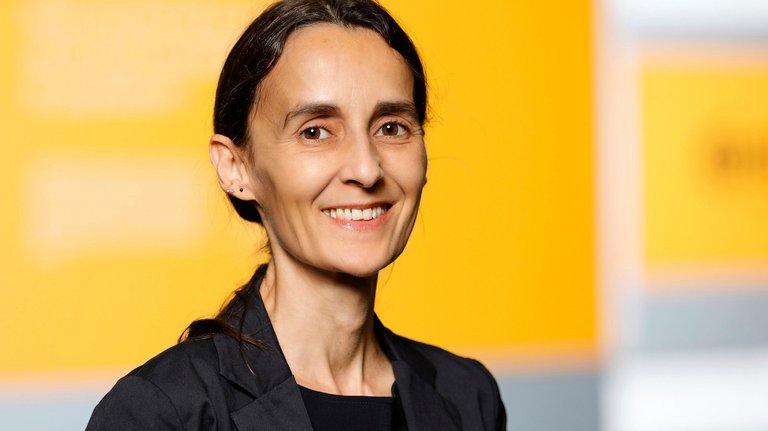Virtually Mobile – Locally Attached
- Young generation expects the world of work to change due to further technical innovations
- Strong desire for flexible working conditions
- Trend toward immobility intensifies: young people want a job where they live at present
Hanover, December 15, 2015. Virtually mobile, but at the same time locally attached – this is the attitude of young people toward today's world of work in a nutshell. "In an increasingly digitally interconnected world, with networked communication 24 hours a day, the young generation appears to be losing interest in being physically mobile for a job," explains Executive Board member for Human Relations Dr. Ariane Reinhart, analyzing a key finding of Continental's latest "Careers Survey 2015." "Although young people want to work in international teams and in a global environment, they would prefer to experience this international workplace on a virtual basis with the help of technological developments, rather than on a face-to-face basis."
The study also clearly demonstrates that the first generation to have grown up surrounded by the Internet, mobile communication, and global interconnectivity wants a safe nest in which to live. Around one in two respondents would prefer to look for a job in the region where he or she currently lives. "Our long-term study shows that this trend has been becoming more pronounced over the years. We believe the reason may be the desire for a kind of protected anchorage, a place where they can escape what they perceive to be increasingly rough waters," explains Reinhart. "In fact, large companies in particular offer a basis from which employees can develop together with others and, in the case of Continental, where they can help to develop the mobility of tomorrow – and indeed on a worldwide basis."
Continental's "Careers Survey 2015" asked students and young graduates working for Continental in their first few years on the job about their expectations with regard to the world of work, personal career development, and private and social future prospects.
In this representative survey carried out on behalf of the international technology corporation, the German Institute for Applied Social Sciences (infas) surveyed around 1,000 students from each country (Germany, Romania, and China) with majors in engineering, natural sciences, and economics, and around 1,000 Continental young professionals from each country.
The study also reflects their desire for a good work-life balance and highlights the need to make the world of work more flexible in order to achieve this as a key issue for generation Y. For example, when asked about weekend working on an occasional basis or combined with flexible weekly working hours, most students stated that this was conceivable (Germany: 72 percent, Romania: 60 percent, and China 88 percent).
However, the young people clearly regarded cloud computing, virtual conference rooms, or video conferences as much more effective than working time models as a key technological basis for mobile working as a component of their desired level of flexibility and balance. Four out of five students and young professionals also expect the world of work to change significantly by 2035 as a result of technologies that do not even exist today. The Chinese students and young professionals showed the greatest affinity for technology and innovative spirit: 96 percent in each case, and therefore by far the greatest number of respondents, expect significant changes as a result of innovations that do not even exist yet. This figure stood at 82 percent in Germany and 90 percent in Romania.
Mobility and internationality – Germany as popular as the U.S.A.
If you want to motivate students and young professionals to take part in a "real" international assignment, rather than just virtual meetings abroad, the majority of young people regard above-average pay as an incentive. Furthermore, many talented young people are prepared to work abroad for a few years, provided that the posting forms part of a career plan or that their duties are particularly interesting. When asked which countries they would even consider for a job abroad, German students cited the U.S.A. (65 percent) and Switzerland (64 percent), while 20 percent could envisage a period spent working in Japan. The German young professionals also favored the U.S.A. (76 percent), Switzerland (55 percent), and Japan (23 percent) for a relocation abroad for work purposes. For the Romanian and Chinese respondents, Germany is now just as attractive as the U.S.A.
For the vast majority, the main reasons for not accepting a position abroad are family or partners, who may not agree with the assignment. Other reasons for not taking a job abroad are uncertainty regarding future career progression and the fear of not being sufficiently prepared.
Germany is therefore clearly a very popular destination for a job abroad because people expect economic stability there. 84 percent of the German students and 94 percent of the German young professionals are also of this opinion, as they rate the competitiveness of German companies as (very) good in comparison with companies in other countries. And they believe that this has remained at a stable, high level for many years. Young people in Romania and China are much more cautious with regard to their own countries' economies. 34 percent of the Romanian students rated the competitiveness of Romanian companies as (very) good, while this figure stood at 44 percent in the case of the young professionals. The Chinese students are more confident: 56 percent of the students, and 41 percent of the young professionals, responded to this question with (very) good.
In light of this, it is surprising that, when asked about their own ability to compete for attractive jobs when compared with applicants from other countries, the German students displayed less self-confidence than the respondents in Romania and China. Around one in two (53 percent) German students rated his or her competitive edge as (very) good – this figure was 62 percent for the Romanian students and 68 percent for the Chinese students. However, this picture changes significantly once they have obtained some initial professional experience: 84 percent of the German young professionals surveyed rated their personal competitive edge as (very) good – this figure was 78 percent for the Romanian young professionals and 48 percent for the Chinese.
Their central professional goals also change once they have some initial professional experience: While the students primarily cited enjoyment of work (Germany: 75 percent, Romania: 47 percent) and opportunities for self-realization (China: 45 percent) as their most important goals, the young professionals from all countries surveyed agreed that a good work-life balance was their main priority (Germany: 63 percent, Romania: 54 percent, China: 54 percent). However, when it comes to choosing a potential employer, a good salary was a top priority for both the students and the young professionals.
"The stability of the German economy also promises security. As a result, it is not only people looking for a job who come to us, but also people looking for protection. We are currently seeing a huge wave of refugees that represents a humanitarian challenge for us all, and among these refugees are some highly talented and qualified people. We want to and will – including here at Continental – find ways of harnessing untapped potential for ourselves," emphasizes Reinhart. "In this context, it is important to remember that the industry and employers are in a position to support and facilitate the integration of certain groups of refugees by means of measures to help them enter the labor market. However, they are not a substitute for a systematic immigration or integration policy that is required to keep pace with the needs of rising refugee numbers."

